Posts Tagged ‘Refugees’ (118 found)
Killing, Beheading and Disappearance of Villagers Instill Fear of Return Among Kokang Refugees
According to recent interviews by SHRF, Kokang refugees sheltering in China remain fearful of return, due to killing, beheading and disappearance of villagers caught returning home […]
• • •Briefing Paper: Voices of Refugees – Situation of Burma’s Refugees Along the Thailand-Burma Border
(27 April 2015) Today, Burma Link and Burma Partnership launches a joint briefing paper, Voices of Refugees – Situation of Burma’s Refugees Along the Thailand-Burma Border, online. The briefing paper highlights how the voices of refugees continue to be neglected in Burma’s reform process […]
• • •Voices of Refugees – Situation of Burma’s Refugees Along the Thailand-Burma Border
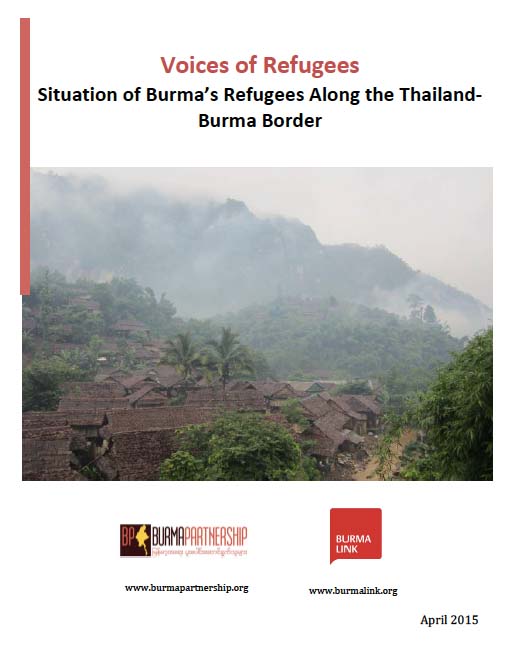 The joint briefing paper by Burma Link and Burma Partnership, Voices of Refugees – Situation of Burma’s Refugees Along the Thailand-Burma Border, which was published online on 27 April 2015, highlights how the voices of refugees continue to be neglected in Burma’s reform process.
The joint briefing paper by Burma Link and Burma Partnership, Voices of Refugees – Situation of Burma’s Refugees Along the Thailand-Burma Border, which was published online on 27 April 2015, highlights how the voices of refugees continue to be neglected in Burma’s reform process.
The briefing paper was initially launched and presented by Soe Aung at the most recently convened Association of Southeast Asian Nations (ASEAN) Civil Society Conference/ASEAN Peoples’ Forum 2015 in Malaysia, which took place between 22-24 April 2015 […]
• • •British Parliament Debates Rohingya of Burma
Burmese Rohingya Organisation UK welcomes the debate on the Rohingya held in the British Parliament on Wednesday 14th January. We are disappointed however, by the response of Foreign Office Minister Hugo Swire MP, who failed to accept that his approach has failed to influence the Burmese government, and failed to announce any new initiatives to try to address the human rights and humanitarian crisis faced by the Rohingya in Burma […]
• • •Forced Displacement Leaves Burmese Families Living in Substandard Conditions, with Higher Rates of Hunger and Sickness
The Burmese government violated international standards when forcibly displacing families from the Thilawa Special Economic Zone (SEZ) by threatening many residents with court appearances and imprisonment, giving them inadequate compensation for land lost, and failing to provide training or other means of income to those who lost their jobs, according to a new report by Physicians for Human Rights (PHR). […]
• • •Pro-Business or Pro-Poor?
 Making Sense of recently unveiled Draft National Land Use Policy
Making Sense of recently unveiled Draft National Land Use Policy
October 18, 2014 saw the official unveiling by the government of the Republic of the Union of Myanmar of its much-awaited draft national land use policy. Once it is finalized, the new policy will guide the establishment of a new overarching framework for the governance of tenure of land and related natural resources like forests for years to come. As such, it is of vital importance.
This preliminary assessment aims to shed light on the key aspects of the draft policy and its potential implications for the country’s majority rural working poor, especially its ethnic minority peoples, although they are not the only ones whose future prospects hinge on how this policy making process will unfold. […]
• • •Karen Civil Society Rallies Around Japan’s Harmful Plans for Eastern Burma
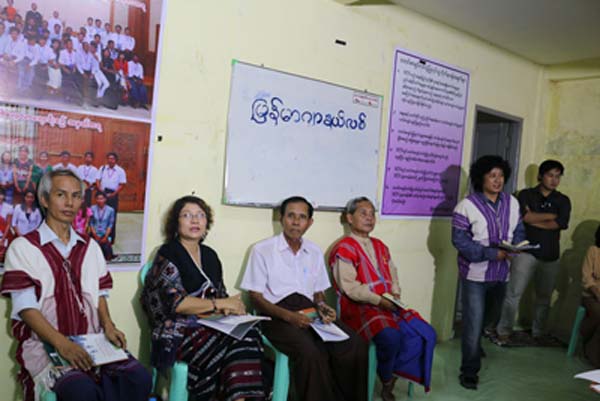 Japan’s lofty development plans for eastern Burma were very publicly rejected by the Karen Peace Support Network (KPSN) at a press conference in Rangoon, citing lack of consultation with communities and the potential for such plans to fuel conflict. Based on a blueprint for extensive development projects produced by the Japanese International Cooperation Agency (JICA), the overseas development arm of the Japanese government, 28 Karen civil society organizations that form the KPSN, released a report to outline their concerns and recommendations. JICA’s blueprint, in which its main goal is to support the return of refugees and internally displaced persons (IDPs), contains four main components; economic corridors, free trade zones and industrial estates, industrial clusters, and urban development. The Japanese government has been working closely with both the Union level and State level Burmese Government in the development of this plan.
Japan’s lofty development plans for eastern Burma were very publicly rejected by the Karen Peace Support Network (KPSN) at a press conference in Rangoon, citing lack of consultation with communities and the potential for such plans to fuel conflict. Based on a blueprint for extensive development projects produced by the Japanese International Cooperation Agency (JICA), the overseas development arm of the Japanese government, 28 Karen civil society organizations that form the KPSN, released a report to outline their concerns and recommendations. JICA’s blueprint, in which its main goal is to support the return of refugees and internally displaced persons (IDPs), contains four main components; economic corridors, free trade zones and industrial estates, industrial clusters, and urban development. The Japanese government has been working closely with both the Union level and State level Burmese Government in the development of this plan.
For Karen civil society, however, there are many concerns, as outlined in the report released on 9 September. Although the blueprint aims to “promote peace through development,” JICA has not conducted a conflict analysis on what is an extremely complicated and fragile context. In fact the plans could serve to exacerbate conflict by facilitating land confiscation, one of the loci of tension in the ceasefire process. Also, improving transport and road access to areas traditionally held by ethnic armed groups such as the Karen National Union (KNU), allows easy access for Burma Army soldiers to the heart of Karen areas. We must not forget the abusive nature of the Burma Army that has been terrorizing civilians for decades and continues to do so, despite a ceasefire in place. Will exposing more communities, who are already vulnerable to abuses, to the unreformed Burma Army really aid peace […]
• • •Critique of Japan International Cooperation Agency’s Blueprint for Development in Southeastern Burma/Myanmar
The Japan International Cooperation Agency (JICA) has recently issued a blueprint that proposes industrial development in Southeast Burma/Myanmar, purportedly to aid in the return and settlement of refugees and Internally Displaced Persons (IDPs) in Karen and Mon States. However, the Karen Peace Support Network (KPSN), a network of nearly 30 ethnic Karen organizations, cautions JICA that its blueprint for infrastructure development such as roads and industrial estates in the war-torn southeast is premature and flawed, potentially exacerbating conflict in the region.
The KPSN (formerly KCBPSN) is the largest network of Karen civil society organizations in Burma/Myanmar. These organizations have been providing support for vulnerable people in this conflict-torn region for decades, striving to empower local communities, build transparent and accountable institutions, and help create a sustainable peace in Burma/Myanmar. KPSN and its member organizations are important stakeholders which must be included in any development planning process in the Karen areas of the southeast […]
• • •New Report: Japan – Burma Plan Could Fuel Conflict in Ethnic Areas
Japan’s new development plans for Southeast Burma could fuel conflict rather than promote peace, warns the largest network of ethnic Karen organizations in the country in a report it will release today in Yangon.
The Karen Peace Support Network (KPSN) launches its report today – Critique of Japan International Cooperation Agency’s Blueprint for Development in South-Eastern Burma/Myanmar – at the Myanmar Journalist Network (MJN) office in Yangon […]
• • •
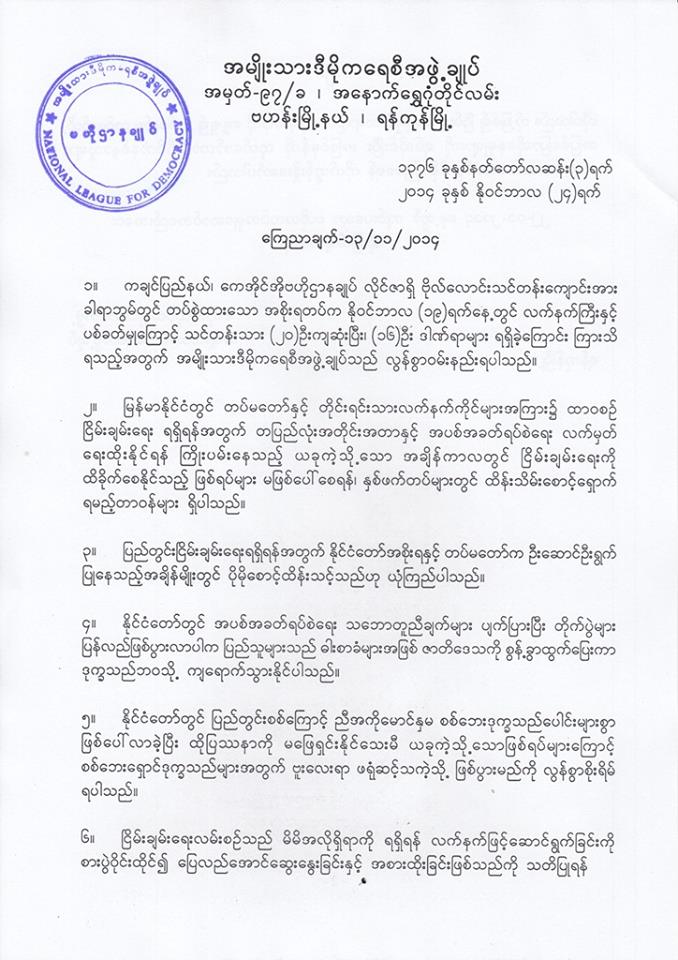
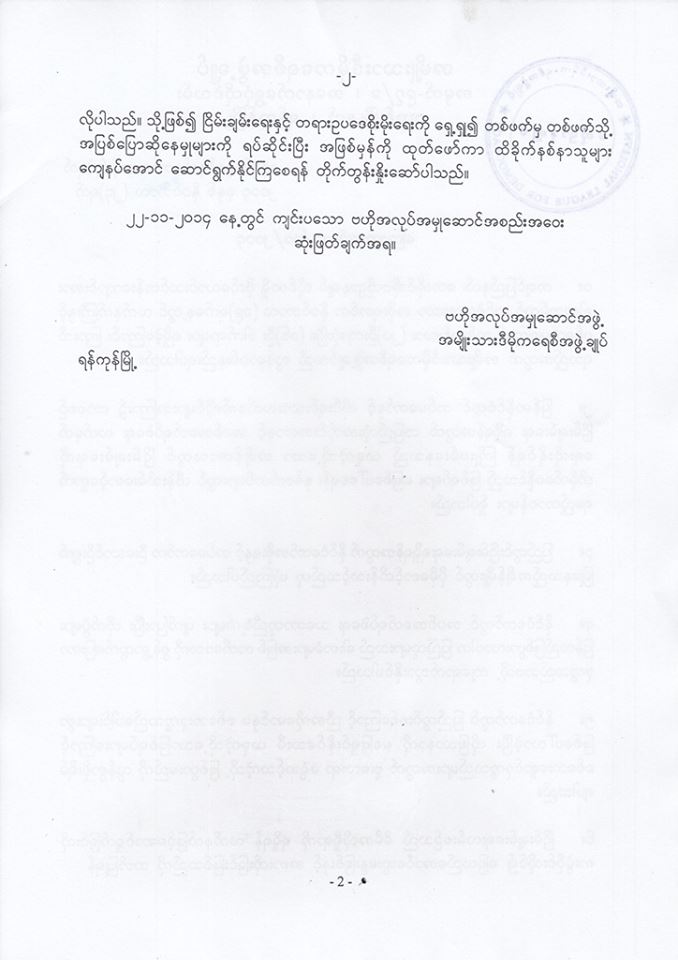
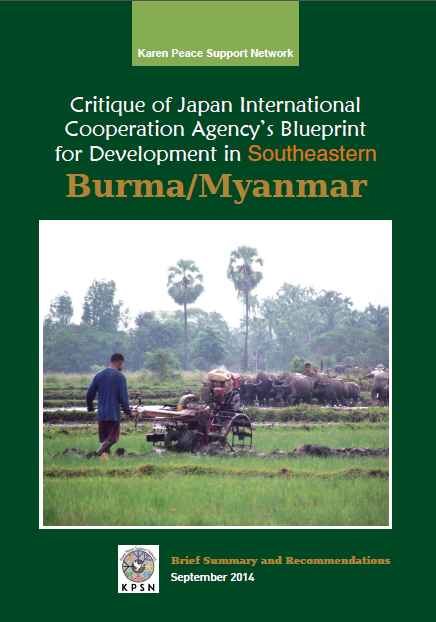








 All posts
All posts